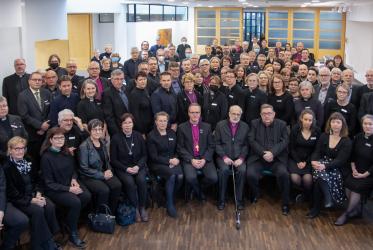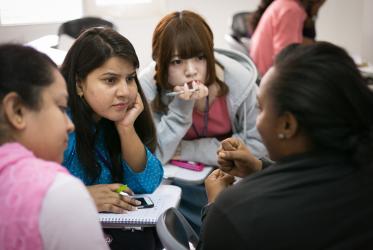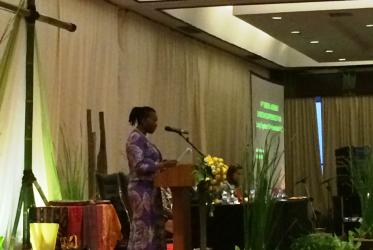Displaying 1 - 19 of 19
COVID-19 in conflict zones: “a crisis within another crisis”
27 November 2020
Hanbeet Rhee: “Young people can be bridges”
17 October 2019
Thursdays in Black: sharing support, transforming lives
21 February 2019
Women in development create space for hope in Egypt
15 June 2017
Plans for 2017 decided by WCC Executive Committee
01 December 2016
Voices from HIV workshop reflect deep impact
07 April 2016
WCC/UN conference calls for coordinated action on refugee crisis
20 January 2016
Thursdays in Black: zero tolerance for violence against women
11 October 2013











